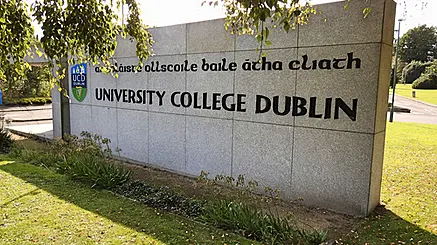Irish Universities Spent Over €5m On Mental Health Services For Students During Covid

Universities in Ireland spent more than €5 million providing mental health services for students during the Covid-19 pandemic, according to a report in the Irish Times.
Under the Freedom of Information Act, records showed that the State’s eight universities spent 5.1 million on counselling for students during the academic year, running from last September to this summer.
Trinity College spent the highest amount, with almost 2 million spent, with UCD’s expenditure coming in at a lower total of 880,000.
Trinity’s expenditure on its student counselling services, included staff pay and non-pay costs such as travel, equipment and recruitment.
It was also noted that 11.4% of the student body sought support from the counselling service, with the college “actively working” to reduce waiting lists.
It was also reported that “the intensity of need in the caseload has significantly increased during this time”.
The average wait time for an initial needs assessment appointment was 9.6 working days while the average wait time for a follow-up counselling appointment was 40 working days.
Meanwhile, UCD’s expenditure on mental health supports last year came to €880,000, with more than 6 per cent of students (1,600) registering to speak to a counsellor.
The average wait time for an appointment ranged from 10 to 14 working days at the Belfield Campus.
Students who, however, expressed a need to meet a counsellor sooner, or who met with a GP or a student adviser who felt they would benefit from accessing counselling as soon as possible, were given appointments sooner.
This was generally within two to six working days, the Irish Times said.
UCC said € 704,000 was spent on mental health services, with some 3.66% of the student population attending appointments with a wait of zero to 14 days.
The college reported that there was “no waiting list” throughout the academic year.
Maynooth University said the waiting time for the 4% of students who attended counselling was “none”, while its expenditure on the service was €264,000.
Elsewhere, DCU spent €255,000 on mental health services, which were accessed by 10.2% of the student population.
The average wait for an appointment was five working days. But students seen to be at ‘immediate risk’ had no waiting list.
NUIG spent €537,000 on counselling with an average wait time of 4.1 days for the 7.9% of students who sought appointments.
UL spent €406,000 in total, and its wait time was nine working days.
TUD’s expenditure came in at €86,462 and there was an average wait time of “less than one week” for the 4% of its students who sought counselling.